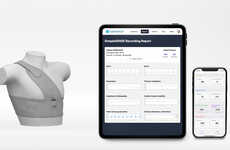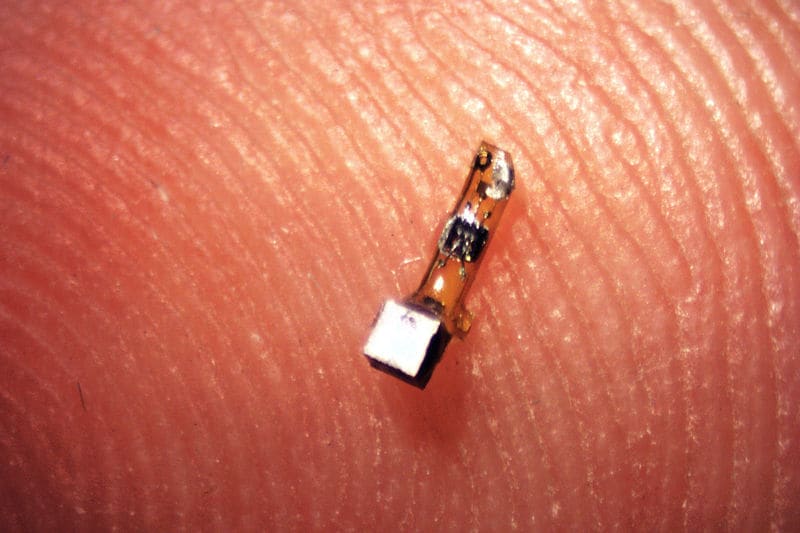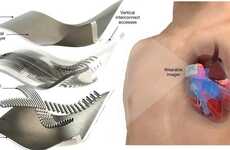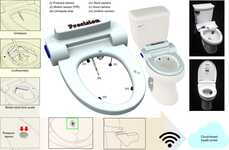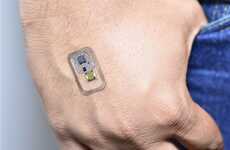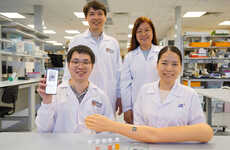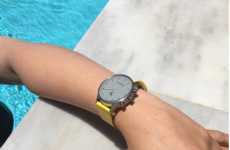
The 'Neural Dust' Sensor Can Be Ingested to Monitor Organ Health
References: news.berkeley.edu & engadget
Like something from an episode of Futurama, the 'Neural Dust' sensor is a minuscule wireless device can be ingested by patients in order to transmit information about their intestinal health. Developed by a team of scientists at the University of California, Berkeley, the Neural Dust sensor is approximately the size of a grain of sand, making it an uninvasive technique for monitoring an array of medical data.
The Neural Dust sensor uses ultrasound technology to both power it and help it read out measurements. The benefit of using ultrasound to charge the device is that it defeats the need for a battery, allowing Neural Dust to have a far longer life inside a patient's organs, muscles, or nerves.
The tiny sensors can also be adjusted to stimulate nerves (as opposed to passively monitoring them,) opening up the possibility of paraplegic and quadriplegic patients using the Neural Dust to control robotic arms and legs.
The Neural Dust sensor uses ultrasound technology to both power it and help it read out measurements. The benefit of using ultrasound to charge the device is that it defeats the need for a battery, allowing Neural Dust to have a far longer life inside a patient's organs, muscles, or nerves.
The tiny sensors can also be adjusted to stimulate nerves (as opposed to passively monitoring them,) opening up the possibility of paraplegic and quadriplegic patients using the Neural Dust to control robotic arms and legs.
Trend Themes
1. Granular Health Sensors - The Neural Dust sensor can revolutionize non-invasive and long-term monitoring of multiple medical data within the body.
2. Ultrasound-charged Wireless Devices - Recent developments indicate that battery-free and long-term wireless devices can soon be a reality using ultrasound technology to power them.
3. Neural Dust Controlled Prosthetics - Researchers may soon develop prosthetics that can be controlled by neural dust for paraplegic and quadriplegic patients.
Industry Implications
1. Healthcare - Neural Dust sensors can potentially revolutionize long-term health monitoring and treatment for various medical conditions.
2. Medical Device Manufacturing - The development of ultrasound-charged wireless devices and neural dust-controlled prosthetics can create new opportunities for medical device manufacturers.
3. Robotics - The ability to control robotic arms and legs through neural dust can lead to new advancements in the field of robotics.
3.4
Score
Popularity
Activity
Freshness


